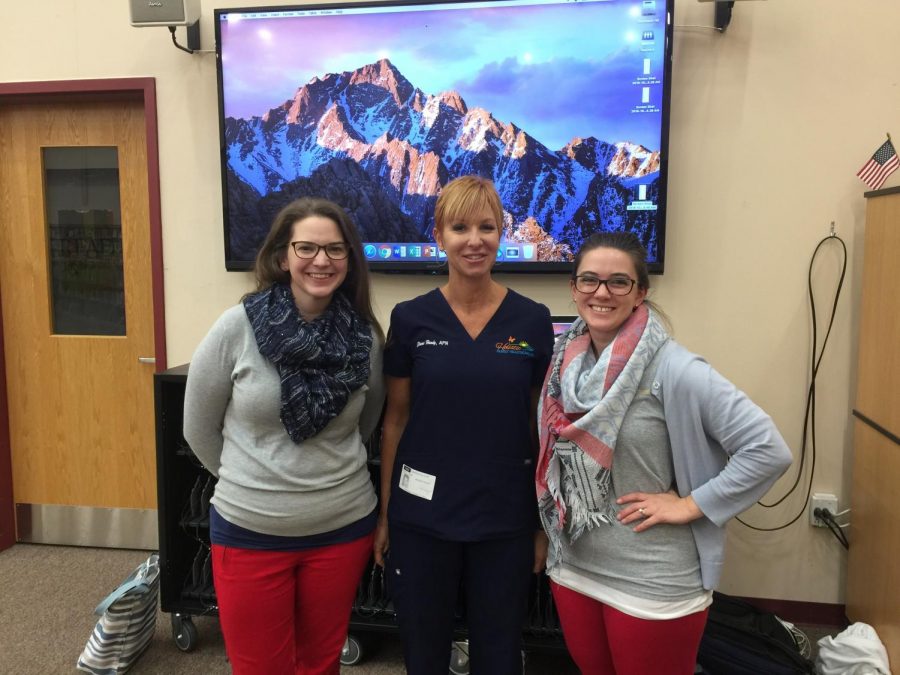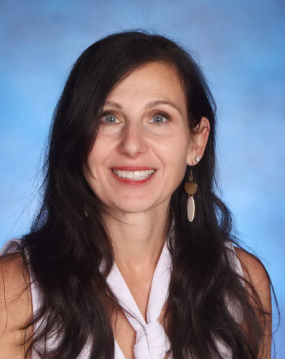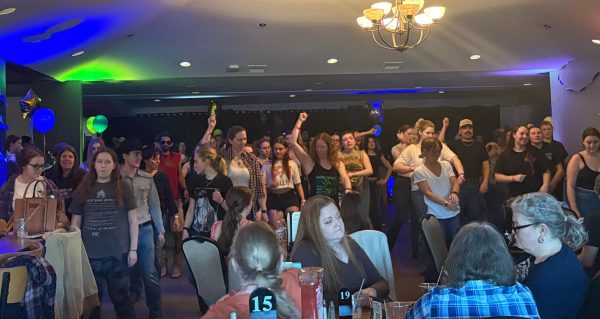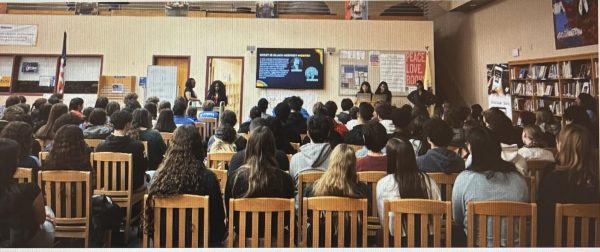Nurse Practitioner Teaches Metabolism
Honors Anatomy & Physiology students learned about metabolism and the endocrine system when Elaine Hardy, a nurse practitioner and owner of Holistic Family Healthcare in Hackettstown, NJ, spoke to the classes in mid-October.
The endocrine system is one of the most vital systems in the human body. Consisting of glands that make hormones, the endocrine system is known as the “chemical messenger” of the body. The system plays a major role in the body by regulating the internal/external conditions.
Hardy said she started her medical career as a hospital nurse but later continued her education to become a nurse practitioner, which, according to Hardy, is very similar to a doctor.
“A nurse practitioner is a nurse who has a bachelor’s degree and a master’s degree,” Hardy said. “They can also examine patients, prescribe medication, order tests and sign death certificates, so we could do pretty much everything a doctor can.”
Hardy said she coordinated a way to teach students about the medical field and caring about their health with Anatomy teachers Alexandra Helle and Jesse Damiano.
Students participated in looking through some of Hardy’s cases to try to find clues and details that could help a nurse practitioner diagnose a patient.
Throughout her presentation, Hardy talked about some of her patients and what they went through, while also discussing how she figured out what was wrong with them.
The presentation also included some signs and symptoms that one can see if something is wrong with their endocrine system, an example of which is having a vitamin B12 deficiency.
“A patient can have symptoms such as numbness, fatigue, and poor balance when you have a vitamin B12 deficiency,” Hardy said. “It’s important to eat a proper diet because if you don’t it can negatively affect you and your body.”
Hardy also included tips on how teens could help take care and improve their health. According to Hardy, following a few simple rules such as drinking enough water and going out in the sun can help prevent many diseases and problems.
“Drink enough water,” she said. It’s also important for teens to start making good habits for when they go off to college. Their bodies are still growing, and it’s important for their nutrition to be on point,” she said.
Students also learned how to improve their diet and were encouraged to do certain activities to ensure maximum health.
“I learned that my food choices and what vitamins and nutrients that I intake can have a great effect on my body and that I should make some changes to my body,” said senior Anatomy student Ayse Bayram.
Junior Anatomy student Alyssa Cupo agreed.
“I really liked how we learned about some of the diseases and problems that can be caused with a weak endocrine system. It was super interesting,” Cupo said.
Overall, the students enjoyed the experience of learning from a medical professional. Junior Alanna Smith shared her favorite part of the presentation.
“My favorite part was when she was describing how nutrition affects your body and the side effects it can give you,” said Smith. “I want to be a nutritionist, so I got a lot out of it.”





